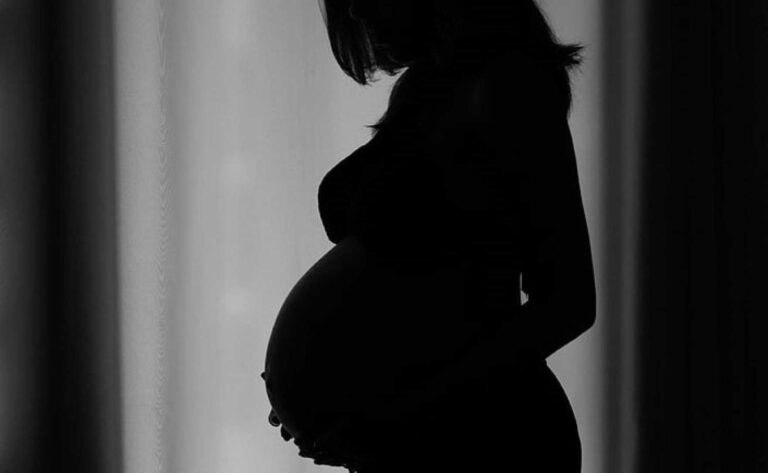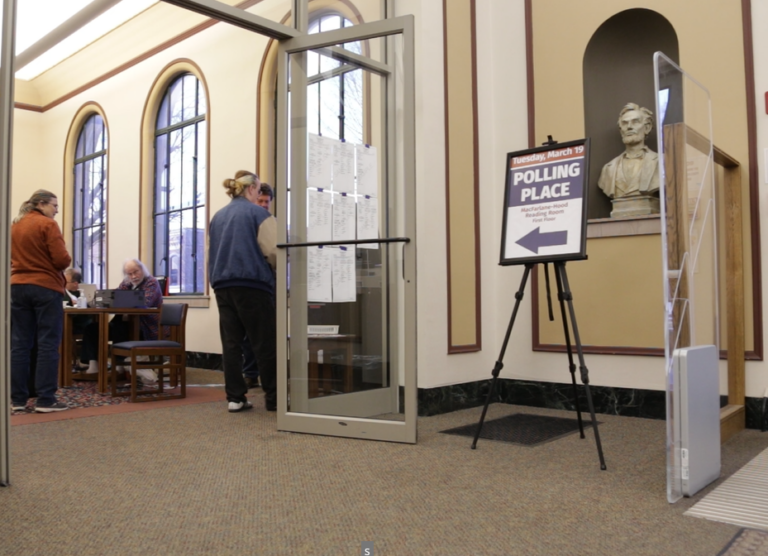URBANA – The U.S. is the only industrialized nation where the rate of pregnancy-related deaths is on the rise.
About 700 U.S. women die each year due to pregnancy or its complications. And Black and Indigenous mothers are two to three times more likely than white mothers to die from pregnancy-related causes, according to the latest data from the U.S. Centers for Disease Control.
“Our country is in a crisis, in terms of unnecessary maternal deaths during pregnancy,” says Karen Tabb Dina, an associate professor at the University of Illinois at Urbana-Champaign’s School of Social Work.
In Illinois, an average of 73 women died each year within one year of pregnancy from 2008 to 2016, with Black women six times as likely to die of a pregnancy-related condition as White women, according to a 2018 report from the state’s department of public health.
About 7 in 10 pregnancy related deaths were deemed preventable by the state’s Maternal Mortality Review Committee, which Tabb Dina serves on.
“It’s cause for alarm,” Tabb Dina says. “Real women are dying each year because of… barriers and discrimination in our health care system and access to care.”
There’s a long history of racist practices in the medical system, including in the field of obstetrics. In the 1800s, Black pregnant women were experimented upon without pain alleviation as a part of medical education.
“That’s not that long ago at all; that’s my grandmother’s grandmother,” Tabb Dina says.
Racism in medicine has trickled down to the present day, she says. Women of color are more likely to be denied medication for postpartum pain management. They also continue to face structural barriers that prevent access to obstetric care and health insurance.
The issue of maternal mental and behavioral health is of particular importance. In Illinois, 29% of maternal deaths are caused by suicide, homicide or drug overdose, according to state data.
Tabb Dina says she’s hopeful a recent policy change in Illinois — that extends Medicaid coverage to low-income mothers for a full year — will help save lives.
Previously, if a mother was above 138% of the federal poverty level and enrolled in Medicaid during pregnancy, she would lose coverage 60 days after giving birth. Now, mothers with incomes up to 213% of the federal poverty level can retain Medicaid coverage for a full year after pregnancy.
Several other states — including New Jersey, Georgia, Indiana and Virginia — are taking action to extend Medicaid coverage for at least some pregnant and postpartum mothers, according to the Kaiser Family Foundation. And the American Rescue Plan gives states a new option to do so, by filing a State Plan Amendment to their Medicaid program.
“Medicaid offers the opportunity for women to be able to be seen by a provider… and expand their [health care] safety net,” she says.
Illinois has also taken steps to ensure all mothers are screened for mental health issues, Tabb Dina says, which can prevent deaths from suicide and drug overdose.
“That basic universal assessment is one way to address health disparities because we’re asking everyone; we’re fully learning the extent of the problem,” she says. “And in an ideal situation, people are getting routed to adequate referrals, follow-up and treatment, so they can achieve the best outcomes for the family.”
The path to addressing racial disparities in maternal health outcomes will need to involve educating health care providers at all levels about racial inequities in medicine, Tabb Dina says.
It’s also important that patients with lived experience are given a seat at the table in policy discussions.
“We need to understand the real lives stories of our near misses, the people that almost die after giving birth,” Tabb Dina Dina says. “What were their barriers, what were their complications, what was their experience?”
New mothers’ stories “can provide insight and a lens into how we can best improve our health care system,” she says.
Karen Tabb Dina will speak at the University of Illinois’ YWCA virtual event, titled “Addressing Racism as a Public Health Crisis,” at Noon on Wednesday, April 21. Find more information on the YWCA’s Facebook page.
If you or someone you know may be considering suicide, contact the National Suicide Prevention Lifeline at 1-800-273-8255 (en español: 1-888-628-9454; deaf and hard of hearing: dial 711, then 1-800-273-8255) or the Crisis Text Line by texting HOME to 741741.
Christine Herman is a reporter for Illinois Newsroom. Follow her on Twitter: @CTHerman







